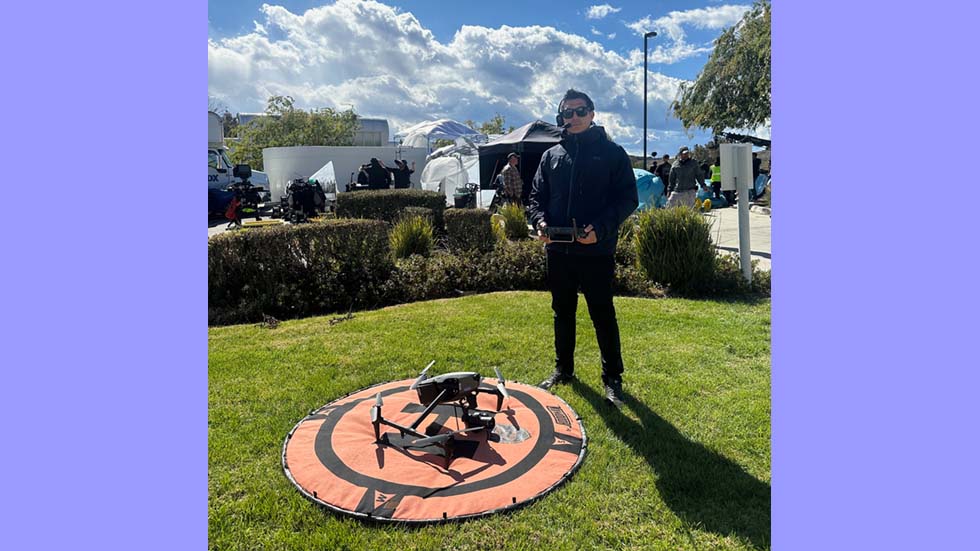XXI Olympic Winter Games coverage offers number of firsts

Albeit a scaled-down version of its Summer Olympics Games production, NBC Universal will once again use a massive amount of HD production and distribution equipment to broadcast the first Winter Olympics to be presented entirely in HDTV: Let the XXI Olympic Winter Games begin.
All of the major vendors of broadcast production equipment, who have been there before, have helped in one way or another to implement NBC’s Dave Mazza’s vision, which he developed after years of trial and error and lots of success (the Summer Games from China offered some of the most stunning sports stadium images ever). He’s now senior vice president of engineering at the NBC Olympics division, and he’s overseen the implementation of a myriad of video servers, cameras routers, production switchers, intercoms and more. Somehow, he and the network’s engineering and production teams make it all work, since its first Winter Games broadcast in 1972 from Sapporo City, Hokkaido, in Japan.
Aside from the sport itself, the Winter Games should celebrate the technical feats in abundance. It couldn't be done without a move to file-based workflows (at least in post) that is made up of literally thousands of robust, high-quality and reliable hardware and software platforms.
A number of firsts
In addition to HDTV (with 5.1 surround-sound audio), this year’s roughly three-week production will provide lots of first: the most total hours ever for a Winter Olympics (more than the last two Winter Olympics combined) and the most live hours ever for a Winter Games.
Over the span of 17 days (Feb. 12-28), including the Opening and Closing Ceremonies to be held in the 60,000-seat BC Place Stadium, the network will present more than 835 hours of coverage (nearly 50 hours per day), which will all be processed through Grass Valley routers and servers at NBCU’s New York City headquarters. Avid and Harris servers on-site will handle much of the file-based material, with file-sharing support from Omneon and EVS.
The more than 835 total hours of coverage will include every one of the 15 Winter Olympic sports being staged, which will appear on six NBC Universal platforms: NBC, USA, MSNBC, CNBC and Universal HD, and online at http://NBCOlympics.com/.
Get the TV Tech Newsletter
The professional video industry's #1 source for news, trends and product and tech information. Sign up below.
Beginning at noon (EST) Feb. 14, USA Network will feature approximately 80 hours of live coverage, both men and women’s competitions, six hockey games and nine curling matches, including the women's bronze medal contest. MSNBC will televise more than 30 hockey and curling contests (approximately 120 hours). This includes Team USA on numerous occasions throughout the games, as well as late night replays of earlier live broadcasts. CNBC will feature the first Olympic puck drops in Vancouver Feb. 13 (Sweden vs. Switzerland) live. For the following 14 days, CNBC will cover at least 24 hockey games — up to the men's bronze medal game — and 18 curling matches, including both the men's and women's gold medal contests (for a total of 100 hours).
Journalists and editors from NBCU’s Washington DC news bureau will use several Grass Valley EDIUS systems on laptops in Vancouver to produce content and send it back to Washington, D.C., for play-to-air. Content will also be stored on a Blue Order archive system. Throughout the Olympic Games, Universal Sports and Universal Sports HD will provide coverage, highlights and analysis from Vancouver of all of the sporting events. With two daily programs, a highlights and recap show and a roundtable discussion featuring journalists from around the globe. Besides broadcasting to homes, viewers can watch select events in 3-D at participating Canadian Cineplex theaters.
Another online Olympics alternative, which you can watch with your mobile phone, is at http://internet.suite101.com/article.cfm/watch-the-2010-winter-olympics-online-for-free#ixzz0ezy0EmFi/.
